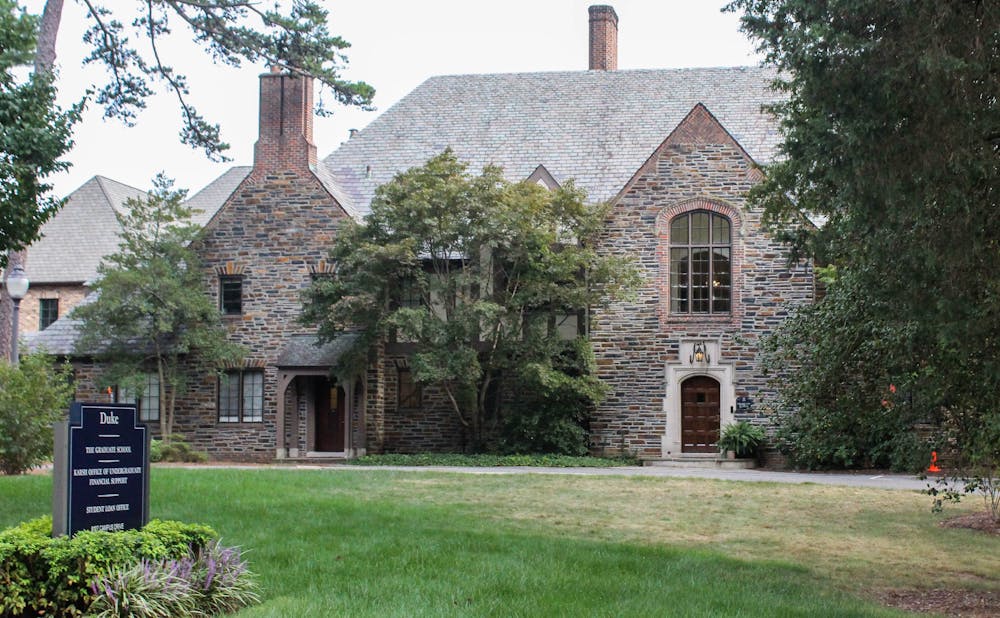As of fall 2022, graduate students made up over 60% of Duke’s student body. Across campus, Duke’s graduate students are involved in a wide variety of organizations and activities, from the Duke Quantitative Finance Club to the Economic Masters’ Student Council.
J. Henry Yeh is a master’s student in the graduate liberal studies program and a member of the Graduate and Professional Young Trustee Nominating Committee, which oversees the Young Trustee nomination process for graduate and professional students.
He is also the newsletter manager for the Graduate and Professional Student Government and sends weekly emails compiling events and information for graduate students.
“[Graduate students] are very, very active. They do a lot, and they're behind the scenes. They don't get a lot of credit,” Yeh said.
Duke has 501 total student organizations, including 366 undergraduate and 135 graduate and professional student organizations recognized in Duke Groups through Duke Student Affairs’ student organization recognition process.
According to Bobby Kunstman, Duke’s assistant vice president for student affairs, graduate students can be members of most organizations at Duke, regardless of whether they are recognized by Duke Student Government or the Graduate and Professional Student Government.
“The graduate and professional student organizations are supported by Student Affairs, the GPSG and each of the respective graduate and professional programs at Duke. Groups that register with the GPSG are also eligible for additional funding from their respective student government,” Kuntsman wrote in an email to The Chronicle.
The GPSG has also established a director of student organizations who oversees and facilitates the operation and funding of student groups across the University.
Upon the arrival of new graduate students this fall, Duke held the Graduate Student Resource Fair in August to introduce graduate students to various student clubs. A diverse set of student groups, including those related to art, sports, religion, professional development and volunteering, set booths around Brooks Field in Wallace Wade Stadium to introduce themselves and attract new members to join and attend the events.
Anuva Agarwal, Graduate School ‘23, was a member of the Economics Masters’ Student Council, responsible for roughly 200 to 250 master’s students in the economics department. This group holds introductory math camps at the beginning of the semester as well as social gatherings and other events that facilitate interactions among economics students and faculty.
In the 22-23 academic year, the Economics Masters’ Student Council attempted to hold one event per month.
Agarwal described the student involvement as “pretty fantastic” for larger events like welcome parties and graduation get-togethers, noting that the student participation tended to be larger for events at the beginning and the end of the semester compared to the events in the middle of the semester.
By Agarwal’s estimates, roughly 70 to 75% of the students in the program attended the welcome party, and around 25% of students participated in the faculty-student meet and greets on weekdays throughout the year.
Yongyu Liu, a master’s student in the Pratt School of Engineering, has joined the Duke Quantitative Finance Club and volunteered at GPSG Community Pantry since coming to Duke this semester. Duke Quantitative Finance Club is open to all students, though undergraduate students account for the majority of its members.
GPSG Community Pantry’s mission is to provide Graduate and Professional students and their families with reliable access to food so that they are able to focus on their academic work. Graduate students can show up to pick up free groceries on weekends, including non-perishable foods and childcare items.
Liu also uses the Duke Groups mobile app to browse events she is interested in and to register. She has dropped by several events held by different student clubs such as a tie-dye event held by the Center for Sexual and Gender Diversity and a jazz night held by Duke University Union.
“I think it's good to reach out,” Yeh said. “Reach out to people you don't know, reach out to people from different programs, and you never know where those friendships can take you.”
Get The Chronicle straight to your inbox
Signup for our weekly newsletter. Cancel at any time.

